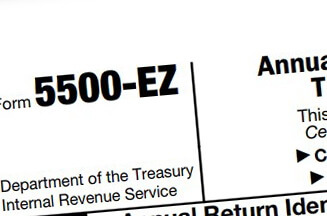Solo 401(k) Plans
Solo 401(k) plans are self-directed retirement plans designed for small-business owners who have no full-time employees (other than self or spouse). These plans may be self-administered by the business owner, making him or her the “trustee” and thereby eliminating the need to engage a third party to handle administration or investments.
A solo 401(k) plan is a great investment tool that provides a wide range of investment choices, as well as checkbook control, which means you have the decision making power regarding how your funds are invested. These plans also offer other excellent retirement savings features such as high contribution limits, a Roth savings component, and the ability to personally borrow from your plan. The Solo 401k is the best option if you are self-employed and would like to maximize contributions to your retirement plan or take advantage of the loan provision.
Learn more about the power and flexibility provided by the Solo 401(k) plans in this section of our blog, with useful articles to help you make the best decisions for your retirement funds and your financial future.
When you operate a Solo 401(k) plan that is truly self-directed, you act as the plan administrator. In that role, it is your responsibility to manage IRS filings, including Form 5500-EZ, Annual Return of a One-Participant Retirement Plan. With a…
When you operate a self-directed Solo 401(k) plan, being mindful of the beneficiaries who will inherit your plan is important. Choosing who to name as beneficiaries for your plan and how to make your designations can be simple or complex,…
As tax season rolls around each year, we typically get a lot of questions about tax filing requirements and where to find a CPA who can help. The simple answer is that most self-directed IRA and Solo 401(k) investors will…
A self-directed Solo 401(k) puts you in direct control of your plan investments. When you act as trustee for your own 401(k) plan, you get to call all the shots and invest as you best see fit. The trade-off for…
The IRS on November 4th announced updates to IRA and 401(k) contribution limits for the 2022 tax year. While individual IRA limits were not increased, savers with a Solo 401(k) or SEP IRA linked to a business will have the…
Starting at age 72, you may be required to take a minimum distribution from your real estate IRA or Solo 401(k) each year. This concept is referred to as Required Minimum Distributions (RMDs). If your self-directed retirement plan is invested…
The Solo 401(k) is a fantastic retirement plan for self-employed entrepreneurs. Because a Solo 401(k) is designed for an owner-only business, it provides the savings power of a 401(k) in a simple to operate format. With high contribution limits, the…
A Solo 401(k) is more than the name might imply. While these plans have been marketed as Solo plans or Individual plans, the more apt description is “owner-only”. What makes the Solo 401(k) special is the simplicity of administration and…
A Solo 401(k) is a fantastic tool for growing wealth with tax-sheltered retirement savings. When most people think about a self-directed IRA or 401(k) plan, they concentrate on the investment flexibility. Being able to invest in real estate, private placements,…
One of the main benefits of a Checkbook IRA or Solo 401(k) plan is that you get to choose the bank where plan funds are held. That bank is where the “checkbook” is held and becomes the operating account from…










